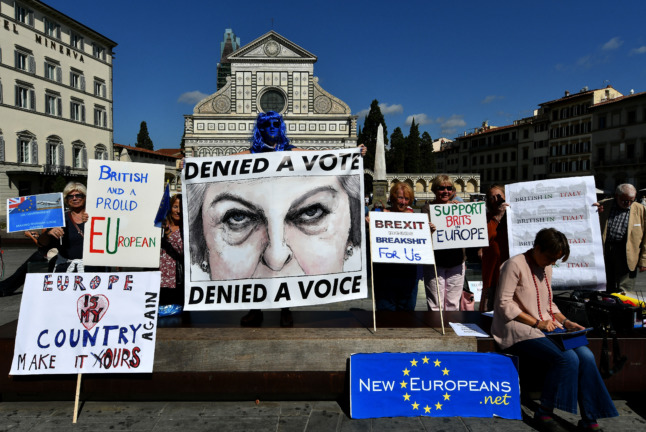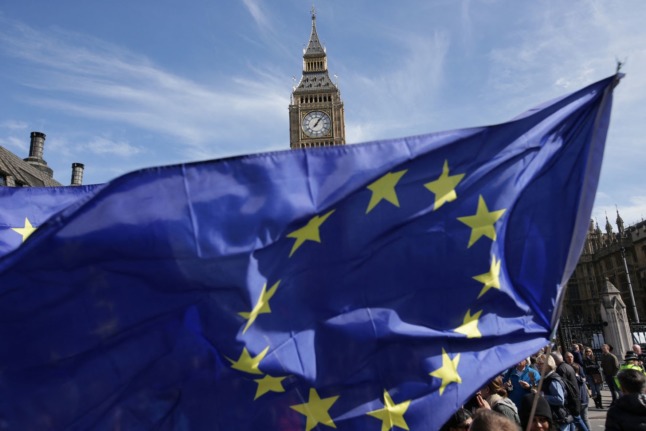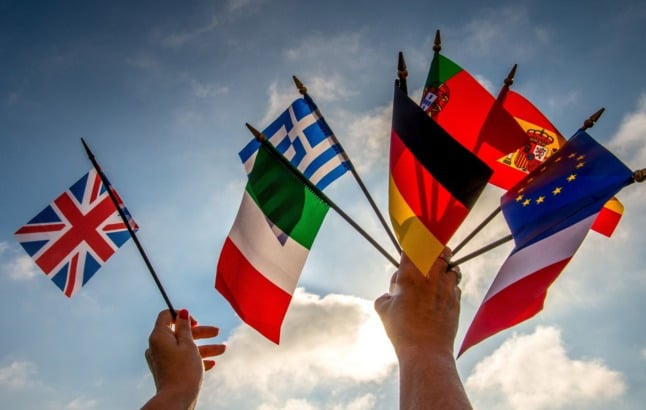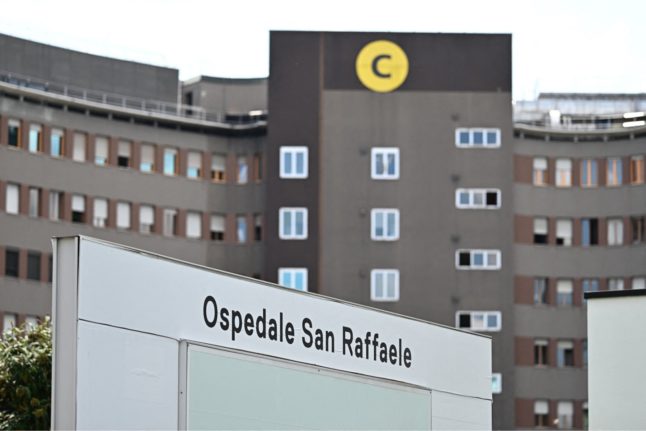On Wednesday the British embassy in Rome organised a town hall-style question and answer session to allow British residents in Italy to raise concerns and put their questions to Minister for the European Neighbourhood Wendy Morton and British Ambassador to Italy Jill Morris.
After the session, The Local was granted a brief interview with the minister to discuss some of the major issues for UK nationals in Italy that we’ve been reporting on this past year.
From residency rights to driving licences, here are the minister’s answers to our questions about the post-Brexit rights of British citizens in Italy.
How is the UK government assisting British nationals struggling to access the new carta di soggiorno elettronica?
UK citizens living in Italy have been encouraged by the British government to apply for a carta di soggiorno elettronica, a new biometric card that proves their right to live in Italy under the terms of the Withdrawal Agreement.
While the card is not required by the Italian government, it’s strongly recommended as the simplest way for Brits who have been resident in Italy since before January 1, 2021 to demonstrate their rights of residency and ensure they can continue to access essential services.
Some UK citizens, though, have had trouble accessing the card due to processing delays or the fact that their local police station, or questura, hasn’t yet got set up to issue the document – and have run into problems obtaining work contracts and applying for driving licenses as a result.

The minister said that the British embassy in Rome has been holding regular online meetings to listen to residents’ concerns about the card, and also provides updates via a newsletter.
“Our ambassador has a newsletter that is a way of communicating regularly to British citizens, so they can sign up to this, as well as signing up to the Foreign Office’s ‘Living In…’ guide, to get up to date information on an ongoing basis,” she said.
Ambassador Morris highlighted that the British embassy is collecting reports from British citizens who have experienced problems accessing the card (as well as any other issues) via a contact form on its website.
“We encourage British residents in Italy to report to us when they have any difficulties exercising their rights, whether that’s related to healthcare, whether that’s at the questura to get the carta di soggiorno elettronica, or any other issues people may have,” the ambassador said.
“We log the individual cases; we also look for trends, so when we see there’s a trend of a problem, for example stamping passports at a particular airport, then we target the authorities at that airport to give them information and make sure all the border guards have that information.”
The embassy sends a monthly update to the Italian authorities to alert them to ongoing issues, she added.
You can find the embassy’s contact form here.
The ambassador also noted that the British embassy has worked with Italy’s national association of mayors, Anci, to distribute a booklet to comuni across the country laying out the post-Brexit rights of British citizens.
Are the UK and Italy any closer to reaching an agreement on reciprocal driving licenses before the grace period expires at the end of this year?
After Britain left the EU at the end of last year, British residents who hadn’t yet got around to converting their UK license to an Italian one were granted a 12-month grace period in which they could continue to use their British license in Italy.
Many hoped that Italy and the UK would later come to an agreement which would allow drivers to continue using their British license beyond that point.
But with less than four months to go before the grace period expires, Brits are now wondering whether to gamble on the two countries reaching an accord by the end of this year – and risk being unable to drive come January 1st – or to undergo the time-consuming and expensive process of retaking their driving test in Italy.
When we raised this issue with Ms. Morton, she said: “We absolutely are continuing to negotiate with the Italian government on the right to exchange a UK license for an Italian one without the need to retake a driving test, and I can assure you it’s our absolute priority to reach an agreement before the end of the grace period which is at the end of this year.”
REAL ALSO: Reader question: Will my UK driving licence still be valid in Italy after 2021?

What is government doing to help British-Italian families wanting to return to live in the UK?
UK nationals wanting to return to live in Britain with their EU partners have until the end of March 2022 before the bar for being granted a spousal visa will be significantly raised. That deadline is fixed and will not be extended, the minister confirmed on Wednesday.
“If they want to apply, it’s important that they apply before the deadline,” she told The Local.
“Close family members of UK nationals who return from living in the EU by the 29th of March next year can apply to the EU Settlement Scheme as long as that relationship existed before exit day.”
“It’s also worth remembering that family members of individuals from the EU, from Switzerland, Norway, Iceland, or Lichtenstein, as well as the families of British citizens may also be eligible to apply for a family permit under the EU Settlement Scheme, which will make it easier to travel with a family member to the UK.”
READ ALSO: Brits with EU partners warned over future problems returning to live in UK
Some EU-British couples, however, are already experiencing problems having their right to live together in the UK recognised, with reports coming out that the Home Office has denied some applications on seemingly flimsy or technical grounds.
“The fundamental thing here is that British citizens can return to the UK at any time. And it’s important that we remember that,” the minister said when asked about this issue.
In case you were wondering.
For British-Italian couples in Italy experiencing problems, “the first port of call should be our team here in the embassy; it may be that they then need to be signposted if it’s a Home Office issue,” said the minister.
“The Home Office has made a whole range of advice available online, and can also be contacted by telephone and by email.”
See The Local’s ‘Dealing with Brexit‘ section for the latest news and updates.



 Please whitelist us to continue reading.
Please whitelist us to continue reading.
On the issue of driving licences, I understand the negotiations are for reciprocal rights for driving licences issued by the UK AND THE CROWN DEPENDENCIES. Is this the case?
Does anyone now if the government will allow us to continue driving in Italy we arrived here on the 18th December 2020 but only got residency in February 2021. It was delayed until then due to the fact the only person in the council was ill with COVID and not working.